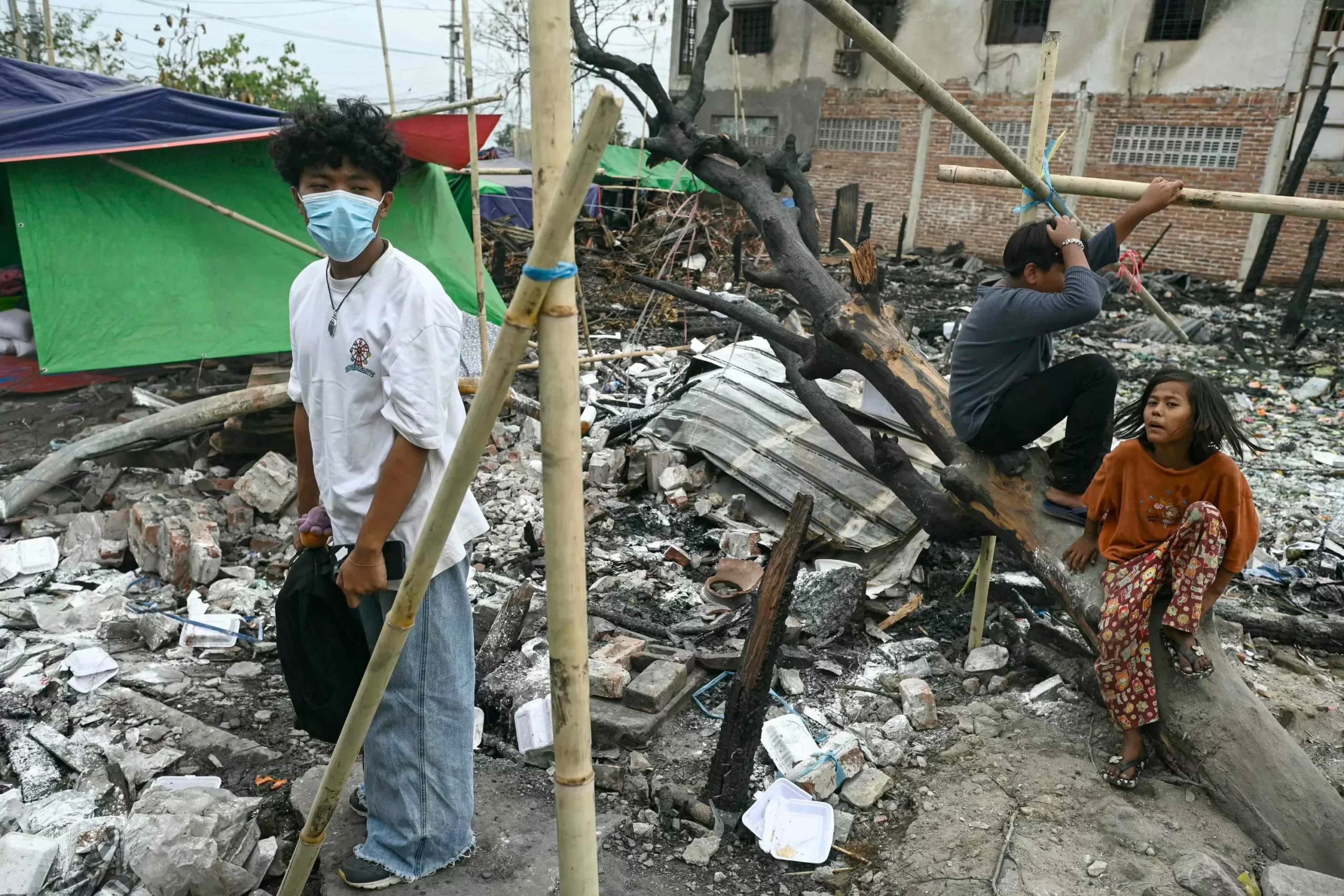Since Myanmar’s devastating March 28 earthquake, the country has been struggling to recover from the destruction and loss of life. As the nation works to rebuild and heal, another threat has emerged – digital profiteers taking advantage of the disaster’s chaos to spread fake news and misleading videos on social media.
In the aftermath of the earthquake, social media has become a vital tool for communication and information sharing. However, it has also become a breeding ground for opportunistic individuals seeking to capitalize on the tragedy for their own gain. These digital profiteers have been using the platform to spread false information and misleading videos, causing confusion and panic among the already traumatized population.
One of the most alarming examples of this is the circulation of a video claiming to show a tsunami hitting the coast of Myanmar. The video, which was shared widely on social media, turned out to be a clip from a 2004 tsunami in Indonesia. This false information caused unnecessary panic and fear among the people, diverting attention and resources away from the real needs of the earthquake victims.
In addition to spreading fake news, these digital profiteers have also been using the disaster to scam people out of their money. They have been creating fake donation pages and asking for donations for the earthquake victims, but instead, pocketing the money for themselves. This not only takes advantage of people’s generosity but also hinders the efforts of legitimate organizations and individuals who are working tirelessly to provide aid to those in need.
The spread of fake news and scams not only adds to the chaos and confusion in the aftermath of a disaster but also has a long-term impact on the affected communities. It erodes trust in the information shared on social media and makes it difficult for people to discern what is real and what is not. This can have serious consequences, especially in a time when accurate information is crucial for the safety and well-being of the people.
The Myanmar government has taken steps to combat the spread of fake news and scams on social media. They have urged people to verify information before sharing it and have warned of legal action against those found guilty of spreading false information. However, it is not enough. The responsibility also lies with the social media platforms to monitor and remove fake news and scams from their platforms.
As citizens, we also have a role to play in stopping the spread of fake news and scams. We must be vigilant and fact-check information before sharing it. We should also be cautious when donating money and only do so through legitimate and trustworthy organizations.
In the face of such a disaster, it is heart-wrenching to see individuals taking advantage of the situation for their own gain. It is a reminder that in times of crisis, we must come together as a community and support each other, rather than exploiting the vulnerability of others.
It is also a reminder of the power of social media and the responsibility that comes with it. As we continue to rely on social media for information and communication, we must use it responsibly and not contribute to the spread of fake news and scams.
In conclusion, the spread of fake news and scams on social media in the wake of Myanmar’s earthquake is a despicable act that preys on the vulnerability of the affected communities. It not only adds to the chaos and confusion but also has a long-term impact on the trust in information shared on social media. It is a call for action for all of us to be responsible digital citizens and to stand against such unethical practices. Let us use the power of social media for good and support the people of Myanmar in their time of need.






![Complete BritRail Pass Guide [Types, How to Use It, Pros + Cons]](https://inside-news.uk/wp-content/uploads/2025/06/00221EB4-BCA2-4DBB-6CD4-83DBC37D71FA-120x86.webp)












![Oban Travel Guide [The Gateway to the Isles]](https://inside-news.uk/wp-content/uploads/2024/08/0639BEBE-74BB-C770-884D-952F80C3D514-120x86.webp)


